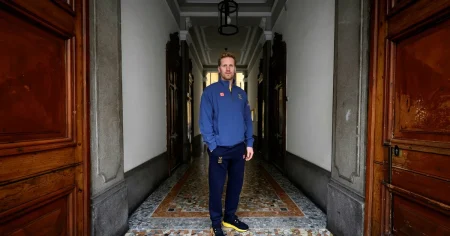The English Premier League football club, Wolverhampton Wanderers, announced on Sunday, December 15th, 2024, the dismissal of their head coach, Gary O’Neil. The decision comes after a string of poor results, culminating in yet another loss that leaves Wolves languishing at the bottom of the league table. The club’s statement offered no specific reasons beyond the persistent underperformance, but the pressure mounting on O’Neil after a series of disappointing displays ultimately proved insurmountable. The search for a new manager will begin immediately as Wolves desperately seek a turnaround to avoid relegation. The club’s hierarchy is now tasked with finding a suitable replacement who can instill confidence and tactical nous into the squad, and quickly reverse the team’s downward trajectory.
O’Neil’s tenure at Wolves was ultimately short-lived and unsuccessful. While he may have initially enjoyed a honeymoon period, the early promise quickly faded as the team’s form deteriorated. The accumulating losses, coupled with a perceived lack of tactical flexibility and a struggling attack, sealed O’Neil’s fate. The demanding nature of the Premier League, especially for clubs battling relegation, requires immediate results, and O’Neil’s inability to deliver those results ultimately cost him his job. The decision, while difficult, reflects the high-stakes environment of top-flight football where managerial changes are often the first response to prolonged periods of underachievement.
The sacking of O’Neil highlights the precarious position of managers in modern football. The intense scrutiny and pressure to perform, coupled with the ever-present threat of relegation, creates a challenging environment for even the most experienced managers. The expectation of immediate success, often coupled with a lack of patience from club owners and fans alike, contributes to a high turnover rate among managers, particularly at struggling clubs. The search for a replacement will undoubtedly involve evaluating candidates based not only on their tactical acumen but also on their ability to handle the pressure cooker of a relegation battle.
The hunt for O’Neil’s replacement will be a crucial period for Wolves. The club must identify a manager who can quickly assess the squad’s strengths and weaknesses, implement a winning strategy, and motivate the players to fight for Premier League survival. The new manager will face the daunting task of revitalizing a demoralized team, instilling a renewed sense of belief, and addressing the underlying issues that have plagued Wolves throughout the season. The choice of the next manager will be pivotal in determining whether Wolves can escape the relegation zone and secure their Premier League status for another season.
The ramifications of Wolves’ poor start to the season extend beyond the immediate concern of relegation. The financial implications of dropping out of the Premier League can be severe, impacting the club’s ability to attract and retain top talent. Relegation would also represent a significant setback to the club’s ambitions and long-term planning. The new manager will therefore be under immense pressure to not only secure short-term survival but also to lay the foundations for future success, whether that be in the Premier League or, in the worst-case scenario, the Championship.
The dismissal of Gary O’Neil underscores the ruthless nature of professional football, particularly in the high-stakes environment of the Premier League. While the decision may seem harsh, it reflects the reality of a results-driven industry where managers are ultimately judged on their team’s performance. The challenge for Wolverhampton Wanderers now lies in finding a suitable successor who can steer the club away from the relegation zone and rebuild the team’s confidence and form. The upcoming weeks will be crucial in determining the club’s fate, and the appointment of the new manager will undoubtedly be the most important decision the club makes in the near future.














